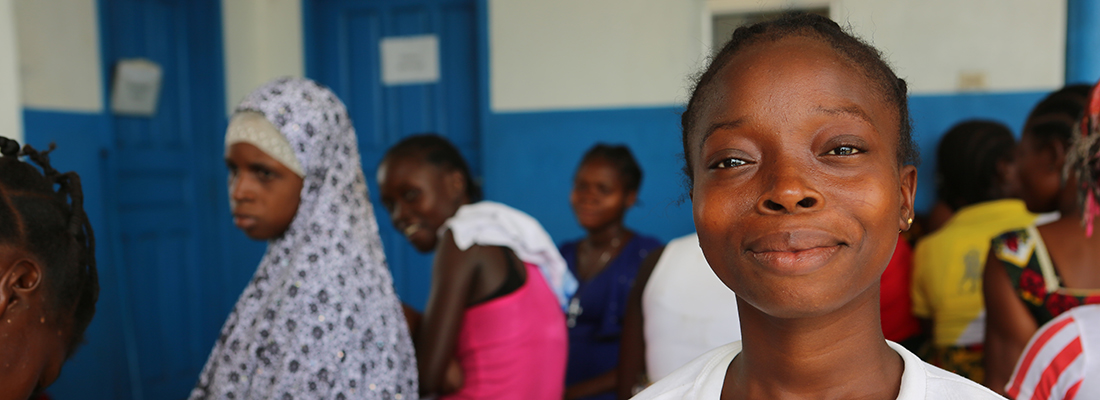
Gender Equity
Our Vision for Gender Equity in Health
Gender is “the socially constructed norms that impose and determine roles, relationships, and positional power for all people across their lifetime,” according to the Global Health 50/50 Initiative.* Gender—which is related to, but separate from, biological sex—is ever evolving in any given individual, community, and society. It impacts all aspects of our lives, health chief among them.
Around the world, gender inequality leads to stark health inequities for women and LGBTQIA+ identities people who confront unique health issues and barriers to care. Pregnancy and childbirth, sexual- and gender-based violence, and breast and cervical cancers are just a few of the conditions that merit access to specialized, high-quality health care. Yet in settings of poverty, such care often doesn’t exist. Where it does, marginalized groups may be unable to access it in the face of overwhelming obstacles, from a lack of educational and economic opportunities to limited autonomy and bodily safety.
PIH seeks to dismantle sexism and gender discrimination in health care and defends gender equity as an integral part of global health equity. We serve patients of all gender identities and sexual orientations, and strategically prioritize their medical and social needs to create a world in which no person suffers ill health on the basis of sex or gender. Likewise, we hire staff of all gender identities and sexual orientations to ensure that PIH and the movement for global health equity are increasingly driven by and for people of all genders.
PIH humbly and fiercely commits to continually adapting as a global organization and improving how we serve marginalized populations in a world where understandings and experiences of gender and sexuality grow and shift. And in the face of harmful policies that further disempower women and girls, we commit to working hand-in-hand with the governments in the countries we serve to invest nationally in new gender equity-aimed programs, policies, and standards.
Advancing Women’s Health
Our belief in every woman’s right to high-quality, specialized care is supported by countless studies showing the ripple effect of prioritizing women’s health. When women are healthy and empowered, so too are families, communities, and countries around the world. That’s why women are at the center of PIH, guiding our work improving health care for impoverished communities as both patients and staff.
PIH provides two-thirds of its services to women and their children, whose needs inform our programs. In countries with some of the world’s highest rates of maternal mortality, we deliver comprehensive maternal health care, from pre- and postnatal check-ups to care at maternal waiting homes to attended, facility-based deliveries and cesarean sections. We also offer family planning services, including long-acting reversible contraceptives, to women across the globe. All told, PIH provides close to one million women’s health visits every year.
In Haiti and Rwanda, PIH-supported facilities commonly care for women with breast and cervical cancers. And to help prevent future cases of cervical cancer—which, though preventable and treatable, is one of the leading causes of cancer deaths for women in Haiti—PIH was among the first nongovernmental organizations to embrace the HPV vaccine for girls.
Other gender equity-focused efforts include programs that support young women and victims of gender-based violence. In Rwanda, we support the Women and Girls Initiative and youth centers where, in partnership with the government, we offer peer mentoring and economic and educational empowerment programs for adolescent girls, as well as medical and social services to teenage mothers and victims of abuse. In Haiti, we provide clubs and activities for young women that focus on family planning, reducing the risk of HIV, and combating gender-based violence. In Liberia, we support adolescent sexual and reproductive health programming, integrating youth-friendly services into primary and secondary care facilities and offering targeted counseling and access to family planning services in communities and schools.
Supporting Women Leaders
Women not only make up the majority of our patients, but also the majority of our staff. At PIH, 64 percent of more than 12,000 community health workers—the bulk of our global staff—are women. In some countries, that percentage is even higher; women make up 91 percent of our community health workforce in Lesotho, and 98 percent in Mexico. By hiring women directly from the communities we serve, PIH benefits from their expertise as trusted members of the community. And for many women, their community health worker position is their first paying job and helps lift them and their families out of poverty. Our community health worker model also elevates the caregiving role women traditionally perform without pay, formalizing it as a well-respected, paid career path with opportunities for growth.
In settings where girls and women are too often unable to pursue an education and achieve their professional potentials, PIH’s social support and medical education programs offer paths to stay in school and become specialized clinicians. In Malawi and Haiti, we provide stipends that cover education costs for students who would otherwise be prevented from obtaining their diplomas due to financial burden. In Haiti, clinicians at the 300-bed teaching hospital, University Hospital in Mirebalais, train the next generation of doctors and nurses through specialized residency programs that strive for gender equity. And around the world, PIH supports a variety of mentorship and fellowship programs for nurses to grow in their careers.
Throughout PIH, women occupy influential positions, such as country directors, chief medical and nursing officers, and clinical, financial, and program managers. These leaders deliver the high-quality health care that every person deserves, mentor future generations of global health leaders, and help PIH and the movement for global health equity grow ever more inclusive.
*Provided by the Global Health 50/50 Initiative